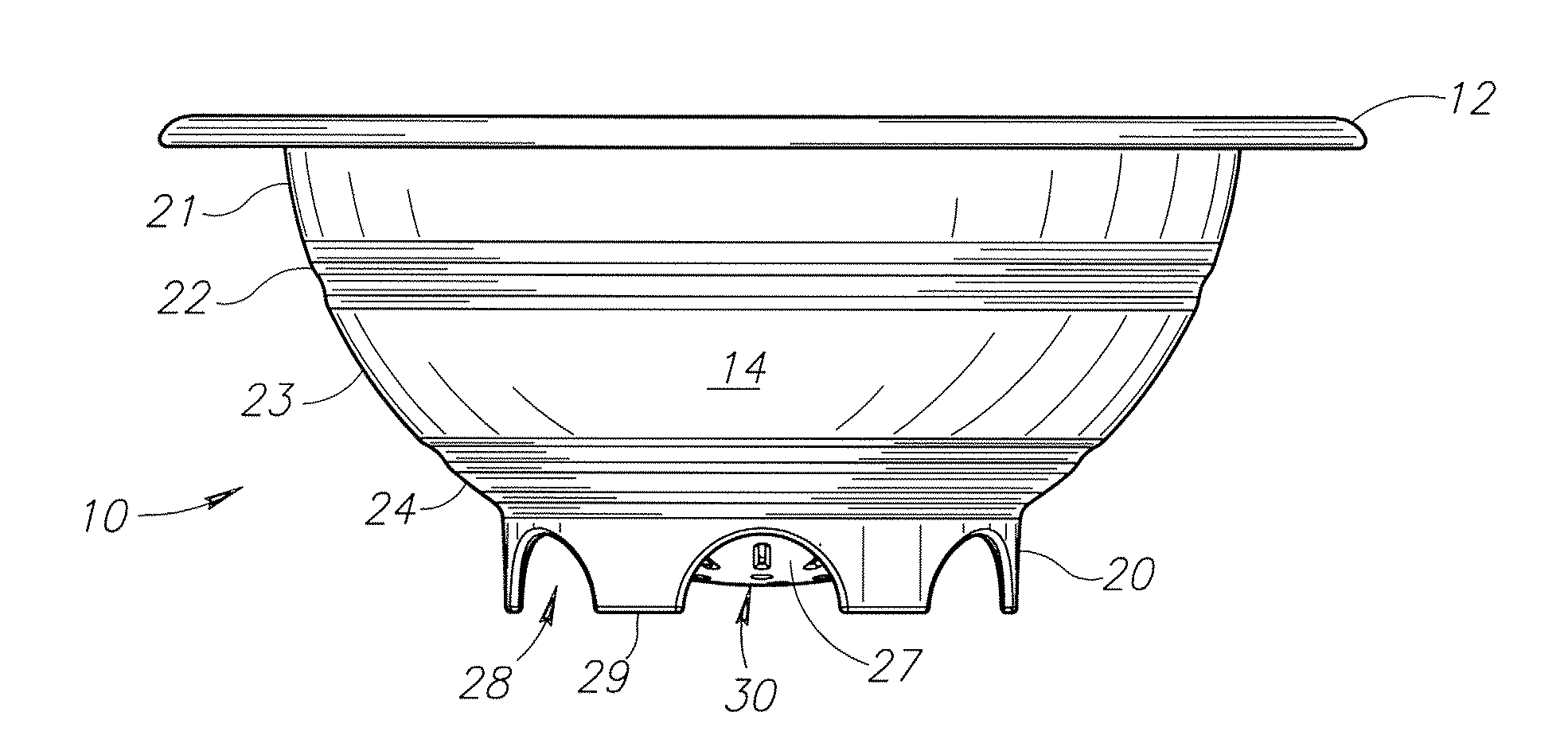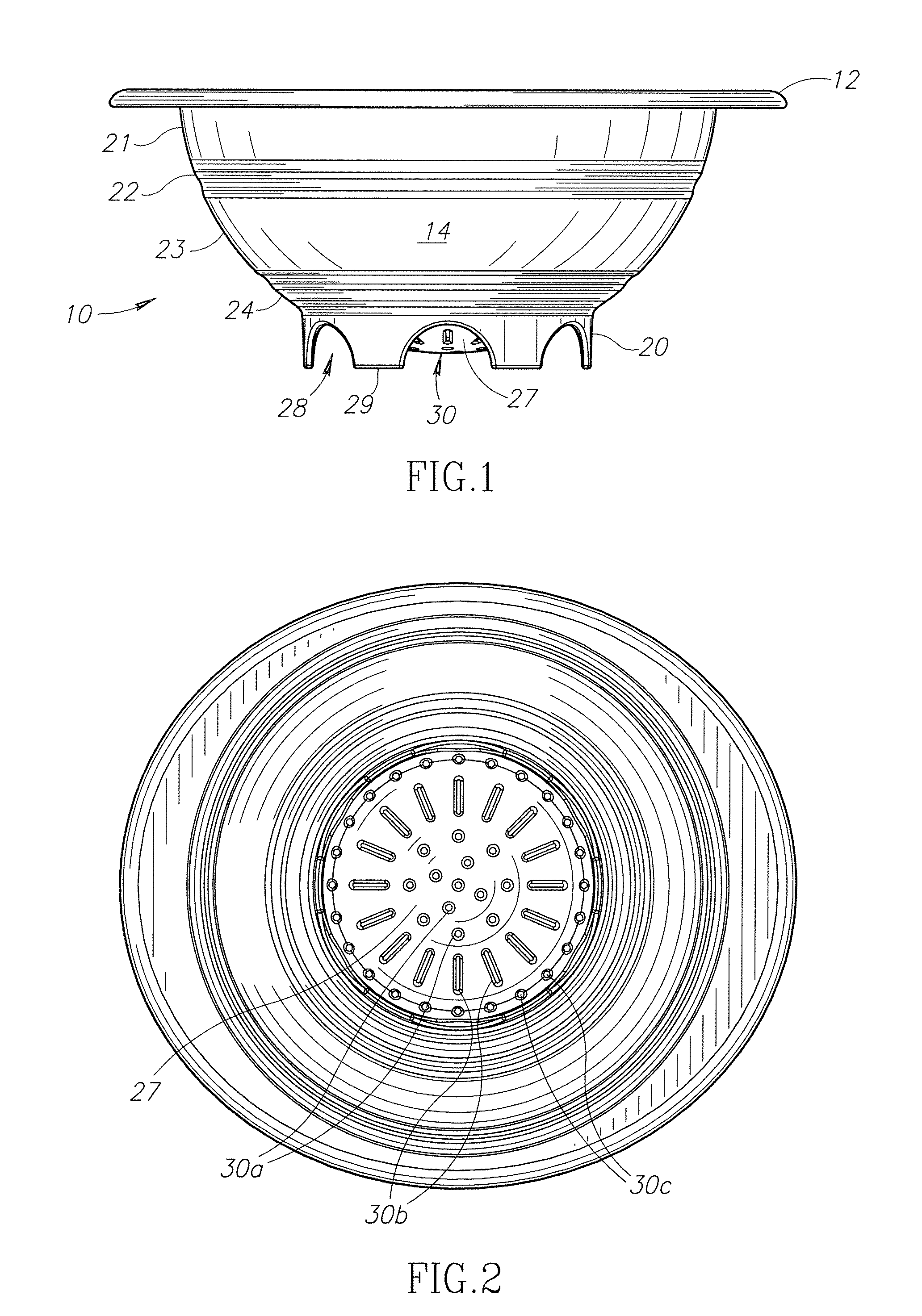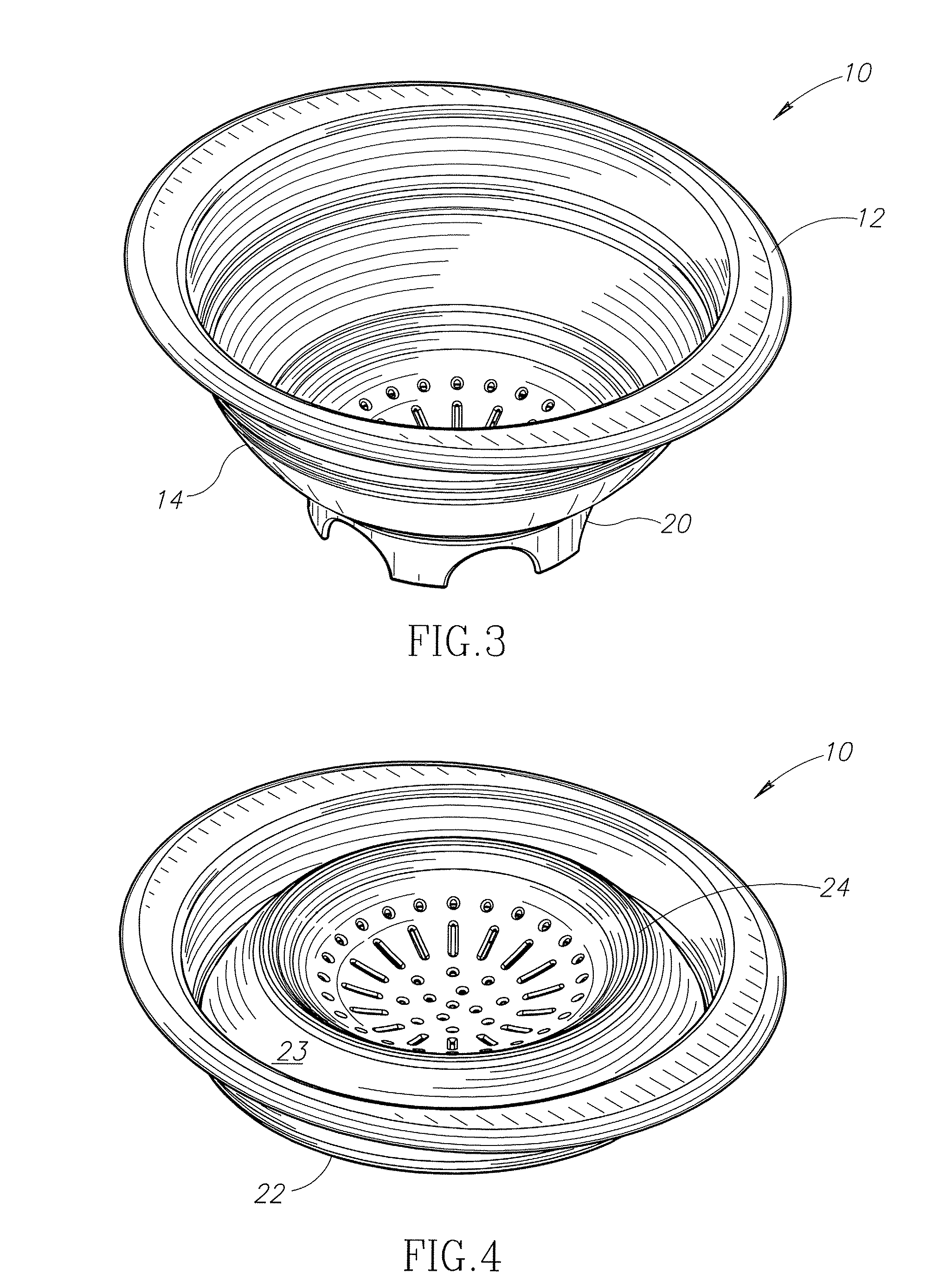Collapsible colander and bowl
a colander and collapsible technology, applied in the field of collapsible colanders, measuring cups, strainers, can solve the problems of cumbersome replacement, insufficient space, and difficult storage of large kitchen items such as bowls and colanders
- Summary
- Abstract
- Description
- Claims
- Application Information
AI Technical Summary
Benefits of technology
Problems solved by technology
Method used
Image
Examples
Embodiment Construction
[0026]FIGS. 1-4 depict an example of a collapsible container which, in the form as shown, is a colander 10. FIG. 1 shows a side view of the colander 10, in which the colander 10 includes a substantially rigid rim 12 and a substantially rigid base 20, and a flexible center section extending between the base and the rim. The center section is a flexible membrane 14 attached to the base and the rim such that together the base, rim, and center membrane form the container. Preferably, the center section is formed from a single material extending between the rim and the base, and most preferably, the material is a food-grade material so that the container can be used with food items.
[0027]As shown, the membrane 14 includes a first relatively uniform section 21, a first folding section 22, a second relatively uniform section 23, and a second folding section 24. Each of the first and second relatively uniform sections is formed from flexible material having a substantially uniform thickness...
PUM
| Property | Measurement | Unit |
|---|---|---|
| flexible | aaaaa | aaaaa |
| thickness | aaaaa | aaaaa |
| height | aaaaa | aaaaa |
Abstract
Description
Claims
Application Information
 Login to View More
Login to View More - R&D
- Intellectual Property
- Life Sciences
- Materials
- Tech Scout
- Unparalleled Data Quality
- Higher Quality Content
- 60% Fewer Hallucinations
Browse by: Latest US Patents, China's latest patents, Technical Efficacy Thesaurus, Application Domain, Technology Topic, Popular Technical Reports.
© 2025 PatSnap. All rights reserved.Legal|Privacy policy|Modern Slavery Act Transparency Statement|Sitemap|About US| Contact US: help@patsnap.com



